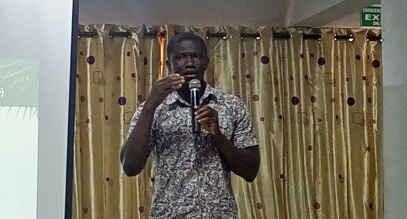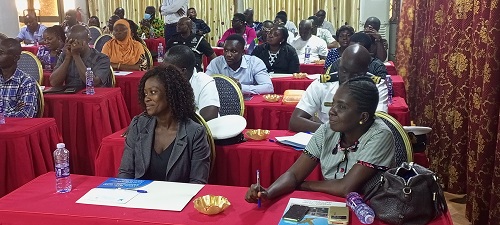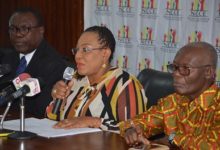
The Environmental Protection Agency (EPA) has reiterated that community mobilisation is key to forestall any future oil spills along Ghana’s coastline.
It stressed that, as Ghana continued to explore hydrocarbons, stakeholders needed to build their preparedness and resilience particularly at the local level to deal with oil spill occurrences.
A Principal Programme Officer, EPA, Western Region, Mr Kwadwo Opoku-Mensah said these at a stakeholders’ workshop on the revised Ghana National Oil Spill Contingency Plan (NOSCP) held in Takoradi on Monday.
Organised by Friends ofthe Nation (FON) in collaboration with Centre for Public Interest Law (CEPIL) and Oxfam Ghana with support from Norwegian Agency for Development Cooperation (NORAD), the workshop reflected on international best practices and also provided views on the NOSCP, which has been in operation since 1986.
The NOSCP brings together the combined resources of the nation, and oil, shipping and oil exploration as well as production companies, to provide level of preparedness to deal with the threat oil spills posed to the environment.
It will also ensure rapid and cooperative response to oil spills and complement other government and industry contingency plans at port or oil installations.
Mr Opoku-Mensah said “Our doors are opened. We will continue to work together and sensitise stakeholders, communities especially our fisherfolks and improve upon our strategies and engagements. We’re not saying it would not happen, but, when it does, we should be prepared and that’s why we are reviewing the national contingency plan.”
Outlining risk assessments which included loss of containment during fuel transfer, pipeline rupture, offloading at sea, subsea leak or well blow out and vessel grounding, he said, the NOSCP also assessed sensitive assets like turtles who laid eggs at estuaries, coastal risks such as sandy beaches, rocky shores at low tide showing algae growth, salt industries, beach seine nets, and fishing landing sites.
He stressed “There should be clarity within both government and industry as to who is responsible for specific actions under all foreseeable situations.”
Tier one, he explained, looked at local, port, facility contingency plans using resources necessary to handle a local spill and or provide initial response, hinting that, oil producers had also trained local teams to handle such situations.
Tier two is for regional or national response, while tier one included the global resources necessary for spills that require substantial additional response, Mr Opoku-Mensah said.
“We will continue to engage, create stakeholders awareness, community sensitisation training and capacity including exercise and drills. All of us can’t be on board at the same time. But, for us in Western Region, we‘ll see how to share industry equipment. Already, Ghana Navy and partners have done OperationObangame Express, as part of our nationals’ responses to such situations.” he told the participants.
FROM CLEMENT ADZEI BOYE, TAKORADI








